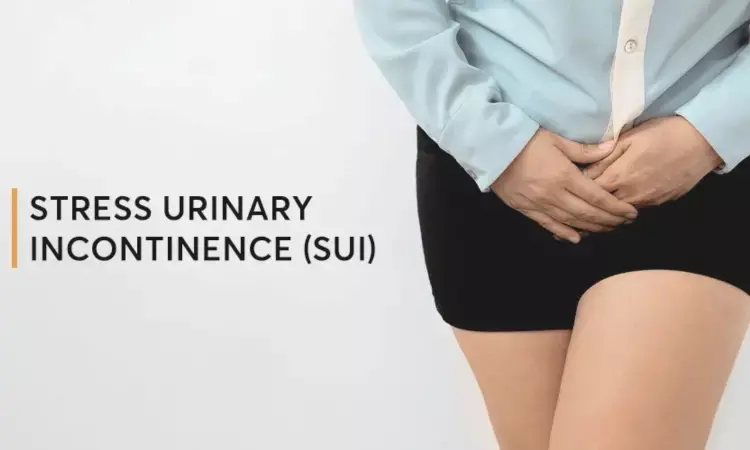- Home
- Medical news & Guidelines
- Anesthesiology
- Cardiology and CTVS
- Critical Care
- Dentistry
- Dermatology
- Diabetes and Endocrinology
- ENT
- Gastroenterology
- Medicine
- Nephrology
- Neurology
- Obstretics-Gynaecology
- Oncology
- Ophthalmology
- Orthopaedics
- Pediatrics-Neonatology
- Psychiatry
- Pulmonology
- Radiology
- Surgery
- Urology
- Laboratory Medicine
- Diet
- Nursing
- Paramedical
- Physiotherapy
- Health news
- Fact Check
- Bone Health Fact Check
- Brain Health Fact Check
- Cancer Related Fact Check
- Child Care Fact Check
- Dental and oral health fact check
- Diabetes and metabolic health fact check
- Diet and Nutrition Fact Check
- Eye and ENT Care Fact Check
- Fitness fact check
- Gut health fact check
- Heart health fact check
- Kidney health fact check
- Medical education fact check
- Men's health fact check
- Respiratory fact check
- Skin and hair care fact check
- Vaccine and Immunization fact check
- Women's health fact check
- AYUSH
- State News
- Andaman and Nicobar Islands
- Andhra Pradesh
- Arunachal Pradesh
- Assam
- Bihar
- Chandigarh
- Chattisgarh
- Dadra and Nagar Haveli
- Daman and Diu
- Delhi
- Goa
- Gujarat
- Haryana
- Himachal Pradesh
- Jammu & Kashmir
- Jharkhand
- Karnataka
- Kerala
- Ladakh
- Lakshadweep
- Madhya Pradesh
- Maharashtra
- Manipur
- Meghalaya
- Mizoram
- Nagaland
- Odisha
- Puducherry
- Punjab
- Rajasthan
- Sikkim
- Tamil Nadu
- Telangana
- Tripura
- Uttar Pradesh
- Uttrakhand
- West Bengal
- Medical Education
- Industry
Tension-Free Vaginal Tape More Effective Than Polyacrylamide Hydrogel for Stress Urinary Incontinence: NEJM

Finland: In a recent long-term study evaluating treatment approaches for stress urinary incontinence (SUI), researchers have found that the tension-free vaginal tape (TVT) procedure continues to deliver more favorable patient satisfaction outcomes than polyacrylamide hydrogel (PAHG) injections. The 5-year follow-up findings shed light on the durability and efficacy of both treatment options, commonly offered to women suffering from SUI.
The findings were published online in the New England Journal of Medicine on April 22, 2025.
Stress urinary incontinence, characterized by involuntary urine leakage during physical activity or exertion, affects the daily lives of many women. Tension-free vaginal tape has traditionally been the standard treatment, offering effective symptom relief. However, concerns regarding the safety of synthetic mesh used in the procedure have increased interest in alternative therapies. Among these, the transurethral injection of polyacrylamide hydrogel has emerged as a minimally invasive option. While both methods have been widely used, their long-term comparative effectiveness has remained unclear until now.
Against the above background, Anna-Maija Itkonen Freitas, Department of Obstetrics and Gynecology, Helsinki University Hospital, Helsinki, Finland, and colleagues conducted a randomized, controlled, noninferiority trial (with a margin of 20%) at Helsinki University Hospital, Finland, to compare the effectiveness of tension-free vaginal tape and PAHG treatment.
The study's primary outcome was patient satisfaction, with secondary outcomes focusing on treatment effectiveness and complications. While the results at 1 and 3 years have been previously published, this report presents the findings from the 5-year follow-up.
The key findings of the study were as follows:
- Of the 223 women initially randomized to a treatment group, 212 women received the assigned treatment, and 195 (92.0%) attended the 5-year follow-up.
- The median satisfaction score on the visual analog scale was 98 for the tension-free vaginal tape group and 90 for the PAHG group.
- A satisfaction score of 80 or higher was achieved by 92.7% of participants in the tension-free vaginal tape group, compared to 74.7% in the PAHG group, with a difference of 18.0 percentage points.
- PAHG did not meet the noninferiority criteria set in the trial.
- In the 5-year follow-up, peri- or postoperative complications occurred in 43.8% of women in the tension-free vaginal tape group and 22.2% of women in the PAHG group, with a difference of 21.5 percentage points.
"In the long-term follow-up, treatment for stress urinary incontinence with polyacrylamide hydrogel was found to be less effective than tension-free vaginal tape in terms of patient satisfaction scores," the researchers wrote. "Additionally, complications occurred twice as often in the TVT group compared to the PAHG group."
Reference: https://evidence.nejm.org/doi/full/10.1056/EVIDoa2400216
Dr Kamal Kant Kohli-MBBS, DTCD- a chest specialist with more than 30 years of practice and a flair for writing clinical articles, Dr Kamal Kant Kohli joined Medical Dialogues as a Chief Editor of Medical News. Besides writing articles, as an editor, he proofreads and verifies all the medical content published on Medical Dialogues including those coming from journals, studies,medical conferences,guidelines etc. Email: drkohli@medicaldialogues.in. Contact no. 011-43720751


